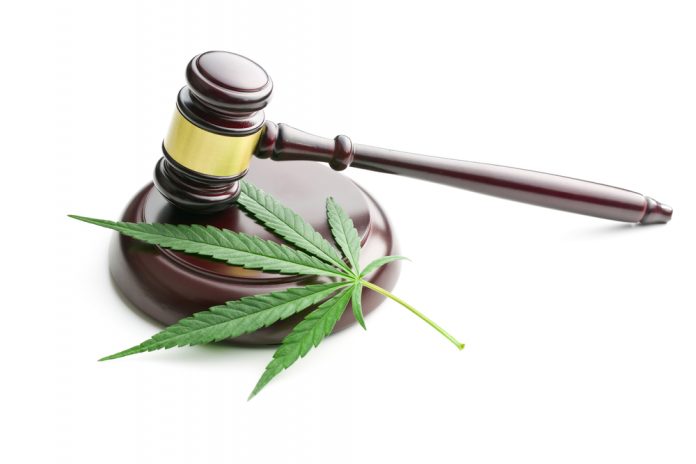As of today, Canada became the second country in the world to legalize the recreational use of marijuana, five years after Uruguay.
While many countries, including most recently South Africa, have decriminalised the use and possession of the drug, in most cases for medical use, only a few have gone as far as to make it fully legal.
As expected, not everyone is chuffed by the move, which has seen the market opening much more rapidly than originally expected – with marijuana-related products anticipated to reach $200 billion within the next 15 years.
Some health professionals have raised concerns over the possible spike in the number of cannabis-related emergency visits, as recently highlighted in the American Journal of Adolescent Health report.
However, Canadian Prime Minister Justin Trudeau has argued that the decision to legalize cannabis isn’t “because we think it’s good for our health.”
“We know we need to do a better job protecting our children,” he said in an earlier tweet, adding: “It’s been too easy for our kids to get marijuana – and for criminals to reap the profits. Today, we change that.”
Although it’s too early to draw any line-in-the-sand conclusion about the effects of marijuana legalisation in both South Africa and Canada, Trudeau’s sentiments may not be farfetched, given the recent findings by the Drug Policy Alliance ‘So Far So Good’ report.
It indicates that marijuana legalisation – in the likes of Washington, Alaska, and Colorado – hasn’t had a negative impact on public health.
“Despite the belief that marijuana is widely available, preliminary data show that the legalisation of marijuana has had little to no impact on the overall rate of youth use of marijuana” states the Drug Policy Alliance.
An overview of marijuana legalisation around the world
South Africa
• On September 18, 2018, the Constitutional court ruled that private, personal cannabis use by adults was legal. The court ordered parliament to draft new laws within 24 months to reflect the order. Except in the presence children, adults are now permitted to use, possess and cultivate cannabis in private and for personal consumption only.
Latin America
• Uruguay in 2013 became the first country in the world to legalize the production, distribution, and consumption of marijuana.
Under Uruguayan law, citizens and residents can buy up to 40 grams (1.4 ounces) of pot a month from pharmacies, grow it themselves at home, or join cannabis clubs where members tend to the plants together.
The government has licensed two private companies to produce and distribute marijuana.
• Several other Latin American countries have legalized cannabis for medicinal use: Chile in 2015, Colombia in 2016 and Argentina, Mexic²o and Peru in 2017.
North America
• The US federal law prohibits the cultivation, sale, and use of marijuana. However, eight states and the national capital Washington, DC have legalized marijuana for recreational use, with the last to date, California, becoming on January 1, 2018, the biggest legal market in the world.
Twenty-nine states and the capital have legalized marijuana for medical use.
• As of today, Canada becomes the first Group of Seven (G7) member and second country in the world to allow the recreational consumption of cannabis.
The legislation will limit personal possession to 30 grams and four plants per household.
Europe
• The Netherlands in general and Amsterdam in particular, have tolerated the sale and use of marijuana in iconic coffee shops since 1976.
That year the Dutch decriminalized the sale of small amounts of cannabis – less than five grams – and allowed individuals to legally grow five plants each for personal use.
Dutch coffee shops generate hundreds of millions of euros in sales annually, and in major hubs such as Amsterdam, they have proven a major tourist draw.
In recent years, however, a number of politicians have pushed back against these tolerant policies. A controversial 2012 law banned the sale of marijuana to non-residents and tourists in three southern provinces.
As early as this year April, The Hague banned cannabis from the city center. But in July the Dutch government gave the green light to a wide-ranging experiment to allow up to 10 municipalities around the country to legally grow cannabis.
• Much like South Africa, Spanish law allows for the private production and consumption of cannabis by adults, though its sale is still illegal.
• The Czech Republic imposes only fines on people in possession of up to 15 grams of marijuana or who have only five plants at home.
• In July 2018 the Constitutional Court in Georgia abolished fines for using marijuana but stipulated that growing and selling it would remain an offense.
• Several other European countries have legalised cannabis for certain medical purposes including Austria, Britain, Croatia, Finland, France, Germany, Greece, Italy, Macedonia, Poland, Romania, and Slovenia.
The French government has announced plans to soften penalties for cannabis use, swapping potential prison sentences for on-the-spot fines, but it remains opposed to legalising the substance.

